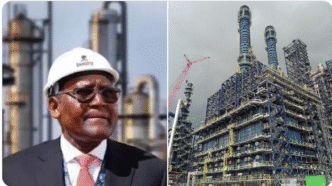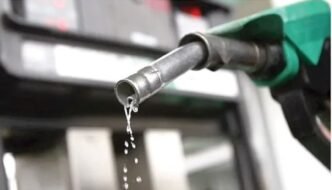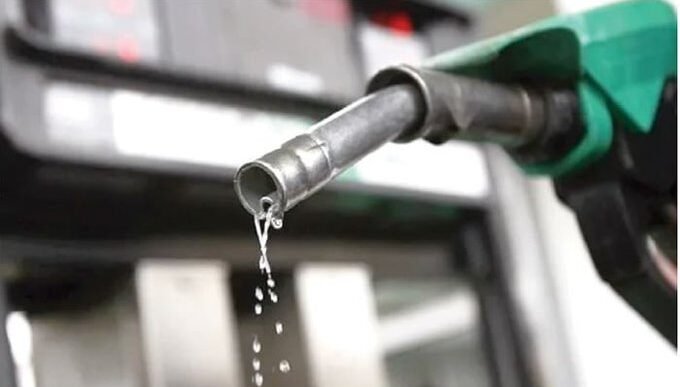In a dramatic escalation of tensions between the Petroleum and Natural Gas Senior Staff Association of Nigeria (PENGASSAN) and the management of Dangote Industries Limited, operations at the Dangote Refinery in Lagos were shut down on Sunday morning. According to an official update issued by the association, the shutdown extended beyond the flagship refinery facility to include the company’s massive fertiliser plant, one of the largest in Africa.
The development has triggered widespread concern across Nigeria, where the refinery — touted as Africa’s largest single-train facility — is considered a critical project for reducing the country’s dependence on imported refined petroleum products. Sunday’s shutdown marks the most significant disruption since the plant began phased operations in 2024.
Details of the Shutdown
In its status update released Sunday morning, PENGASSAN confirmed that the Dangote Refinery was “100% shut down,” bringing production to a halt. The fertiliser plant, another key component of Dangote’s integrated industrial complex, was also affected. PENGASSAN disclosed that while Train Two of the fertiliser facility had been completely shut, Train One was running at only 60% capacity.
The association further noted that the diesel plant within the complex had been allowed to continue operations — at least for now. This partial activity suggests a strategic decision to maintain some critical operations while ensuring maximum pressure is exerted on management through the suspension of core refining and fertiliser production.
Why the Shutdown Matters
The Dangote Refinery has been at the center of Nigeria’s hopes to achieve energy self-sufficiency. With a nameplate capacity of 650,000 barrels per day, the facility was designed to not only meet domestic demand for refined petroleum products such as petrol, diesel, and aviation fuel but also to export surplus to neighbouring West African countries. Its operations are considered vital to stabilising the Nigerian economy, particularly at a time when foreign exchange reserves are strained and the naira remains under pressure.
The fertiliser plant, on the other hand, plays a crucial role in Nigeria’s agricultural sector. As the country seeks to boost local food production and cut down on expensive imports, fertiliser availability has been central to government policy. The plant’s partial shutdown could therefore disrupt the supply chain for farmers ahead of the next planting season, potentially affecting food prices and food security.
PENGASSAN’s Position
While Sunday’s announcement was focused on the operational status of the facilities, industry sources suggest that the shutdown is tied to ongoing disputes between PENGASSAN and the Dangote Group. The union, which represents senior oil and gas workers across Nigeria, has in recent weeks voiced strong opposition to what it described as “lawless and anti-labour practices” by management at Dangote’s facilities.
PENGASSAN has not yet issued a comprehensive statement detailing the exact demands behind Sunday’s action. However, insiders indicate that the move is part of a larger industrial campaign linked to disputes over working conditions, recognition of union rights within the refinery, and disagreements surrounding contracts and welfare packages.
Economic Implications
The immediate effect of the shutdown is expected to be felt in Nigeria’s energy supply chain. Although the refinery has not yet reached full commercial capacity, its output of diesel and aviation fuel has already made significant contributions to reducing imports. A prolonged halt could force the Nigerian National Petroleum Company Limited (NNPCL) and other marketers to fall back on expensive imports, undermining gains made since the refinery began supplying products to the domestic market.
On the agricultural front, the fertiliser plant’s partial closure could strain availability during a period when the government is emphasising food security as a national priority. Nigeria’s fertiliser demand is estimated at over 5 million metric tonnes annually, and the Dangote facility — with a capacity of 3 million metric tonnes — plays a central role in bridging the gap.
Government’s Likely Response
Given the refinery’s strategic importance, analysts predict that the federal government may intervene swiftly to mediate the dispute. President Bola Tinubu’s administration has positioned the Dangote Refinery as a flagship project in its economic recovery agenda. Any disruption that threatens the stability of fuel supply or fertiliser availability is therefore likely to prompt urgent high-level negotiations.
The Ministry of Labour and Employment, as well as the Nigerian Midstream and Downstream Petroleum Regulatory Authority (NMDPRA), are expected to engage both parties in talks. In similar disputes in the past, the federal government has stepped in to avert nationwide strikes or shutdowns of critical facilities.
Industry Reactions
Stakeholders in the oil and gas sector have expressed concern over the unfolding situation. An oil marketer who spoke on condition of anonymity described the shutdown as “a dangerous signal at a time when Nigeria is desperately trying to stabilise domestic energy supplies.” He added that if the dispute lingers, fuel import bills could rise once again, putting further pressure on the foreign exchange market.
Similarly, an agricultural expert noted that a disruption in fertiliser supply could reverse gains made under the Presidential Fertiliser Initiative, which has aimed to make the input affordable and accessible to farmers. “The timing couldn’t be worse,” the expert said. “Farmers are preparing for the next planting cycle, and reduced fertiliser output will either raise prices or create scarcity.”
Dangote Group Silent So Far
As of press time, Dangote Industries Limited had not released an official response to the shutdown. In previous disputes, the group has maintained that it remains committed to global best practices and has described union criticisms as unfounded. Whether management will adopt a conciliatory stance in this instance remains to be seen.
Broader Labour Context
The action at the Dangote Refinery comes amid a broader wave of industrial agitation in Nigeria’s oil and gas sector. Only days ago, PENGASSAN was criticised by the House of Representatives Committee on Downstream Petroleum Resources for directing some branches to halt supplies to Dangote Refinery, a directive that the company described as “lawless.”
Labour experts warn that without constructive engagement, the face-off could escalate into a prolonged standoff that disrupts not only Dangote’s operations but also Nigeria’s fragile fuel supply chain.
What Next?
For now, attention will be focused on whether the federal government can broker a truce. The stakes are high: the refinery represents a multi-billion-dollar investment that Nigeria can ill afford to see idle. With the fertiliser plant also affected, the dispute is no longer just about energy but also about food security — a double blow at a time when households are grappling with inflation and a weakening currency.
As negotiations loom, Nigerians will be watching closely, hoping for a swift resolution that restores operations at the Dangote Refinery and fertiliser plant. The incident underscores once again the central role of industrial relations in shaping the fortunes of Nigeria’s economy.














